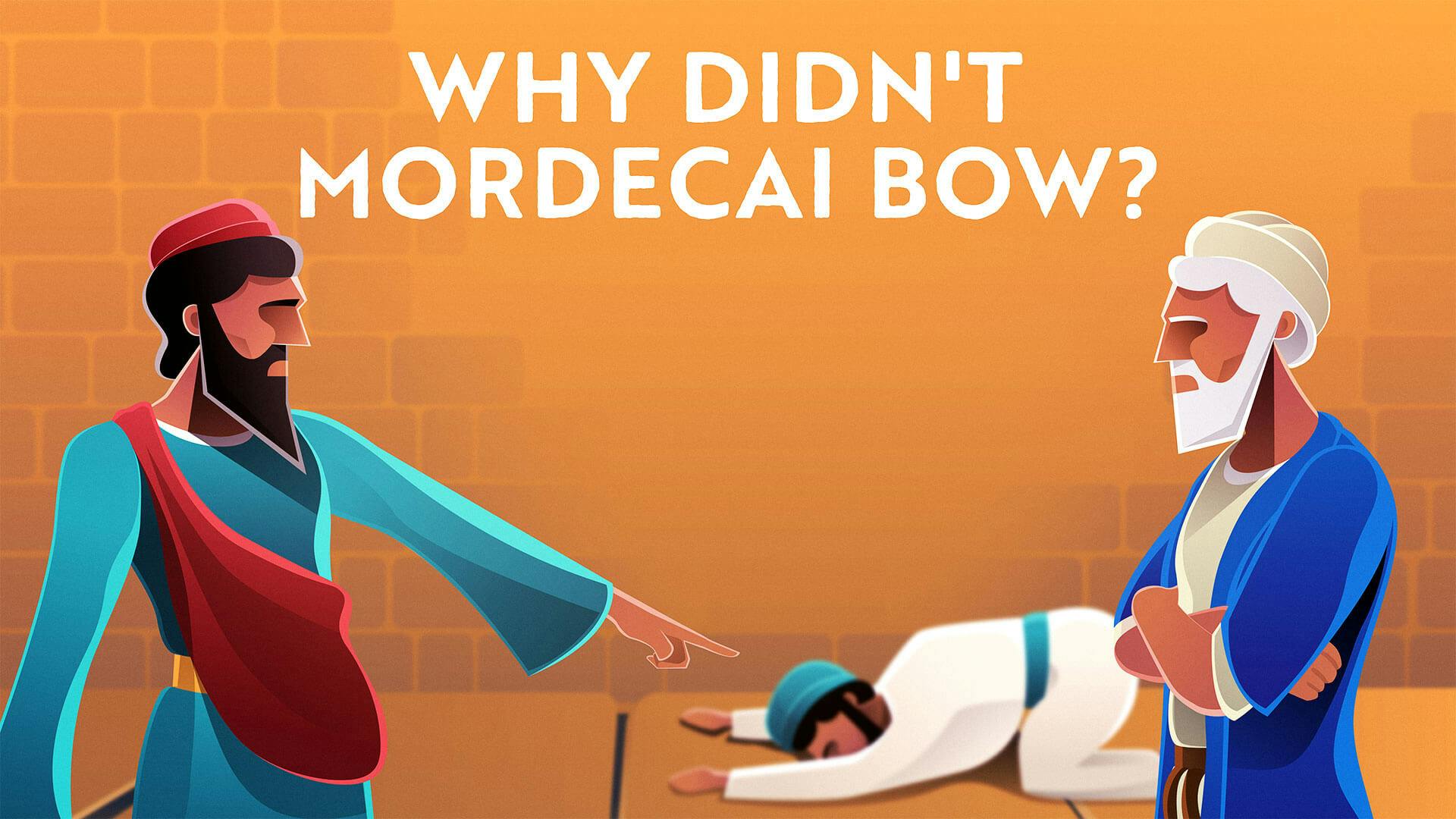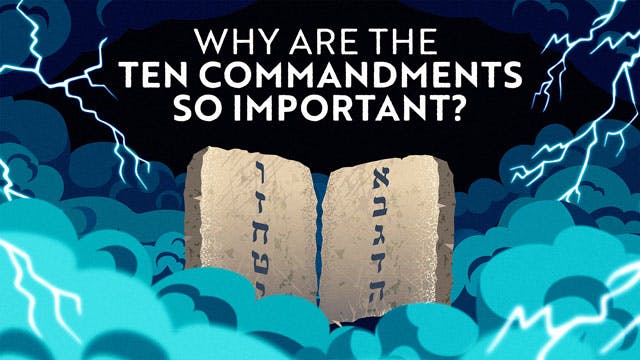Experience The Library
All Categories
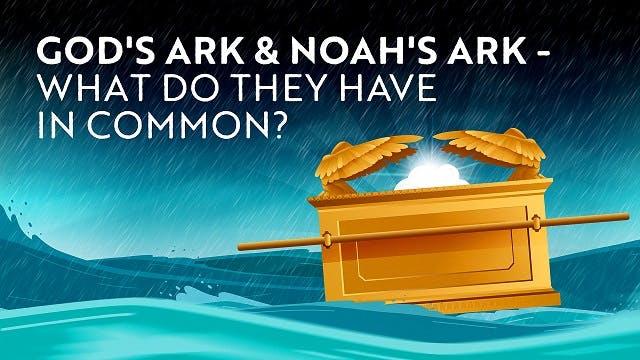
Terumah: Noah's Ark: A Place For Man In God's World
Uncover the extensive parallells between God's ark in the tabernacle and Noah's ark in the flood, and see how we can learn from their mysterious connections.
Part 1 of 2 • 13 min
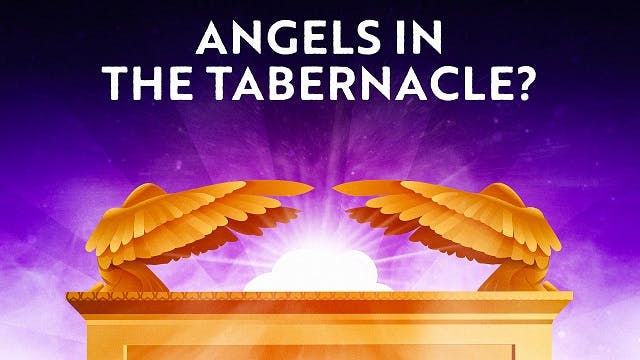
Tetzaveh: Angels in the Tabernacle
The keruvim, or cherubs, appear in the Tabernacle in three different places. This week, Rabbi Fohrman asks, what is the meaning of the keruvim? To answer, he brings us back to the original keruvim, who guarded the Garden of Eden after we were expelled.
Part 1 of 2 • 11 min
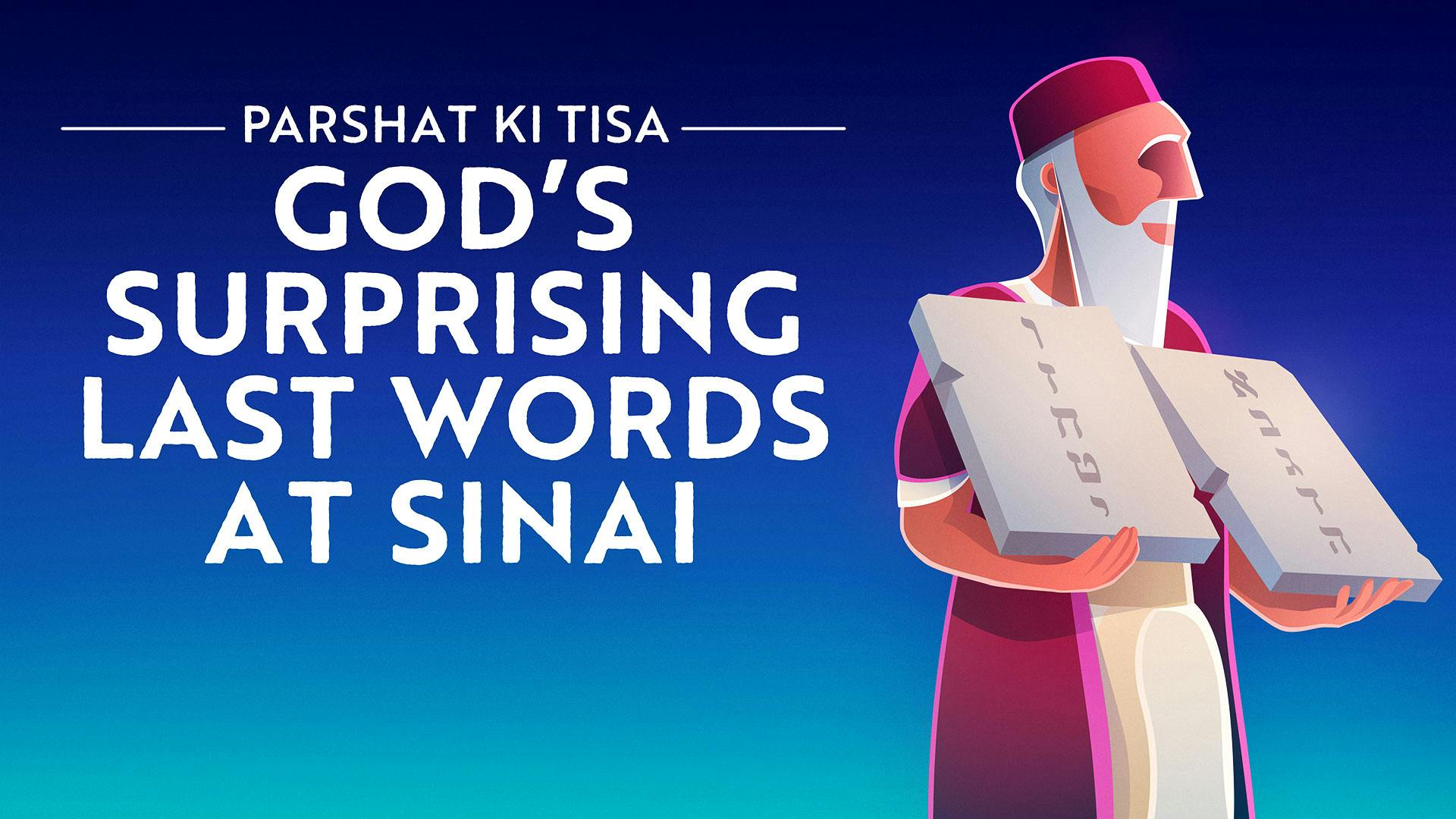
Ki Tisa: God's Surprising Last Words At Sinai
The very last words God tells to Moses as he's ready to leave Sinai are about the Shabbat. Why? The rabbis give their explanation to this question in the introduction to the Sabbath morning prayers. But looking at the rabbis' explanation, we are left with more questions! Join Rabbi Fohrman as he dives deep into this prayer, and understands the rabbis' answer to God's surprising last words to Moses on Sinai.
24 min
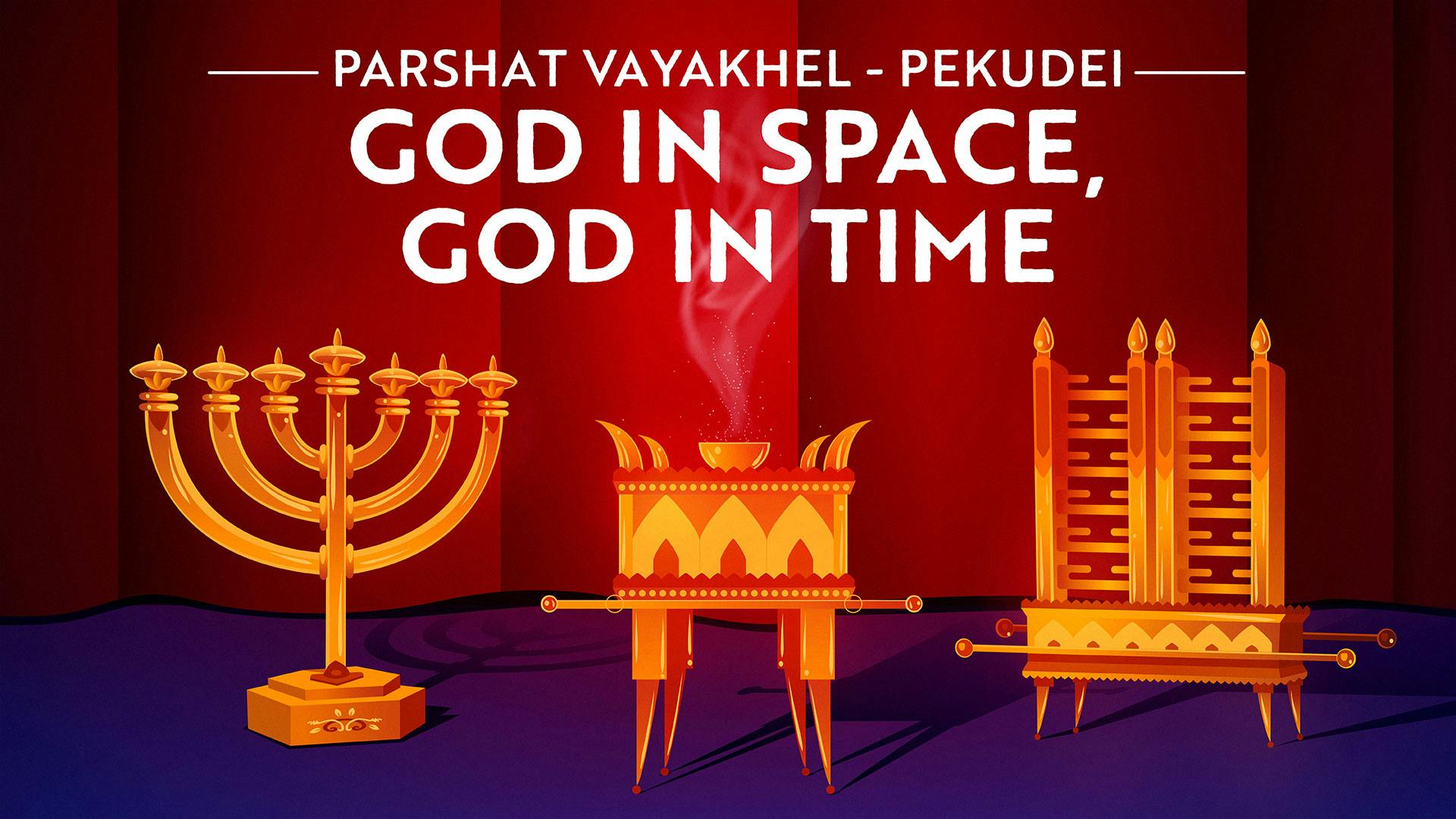
Vayakhel: God In Space, God In Time
This week, Rabbi Fohrman examines a description the Bible gives of Sabbath and asks, what does it mean to bring God into this world through space and through time? In this video, Rabbi Fohrman examines melacha and explains that time and space are the two realms in which we explore our connection with God.
12 min
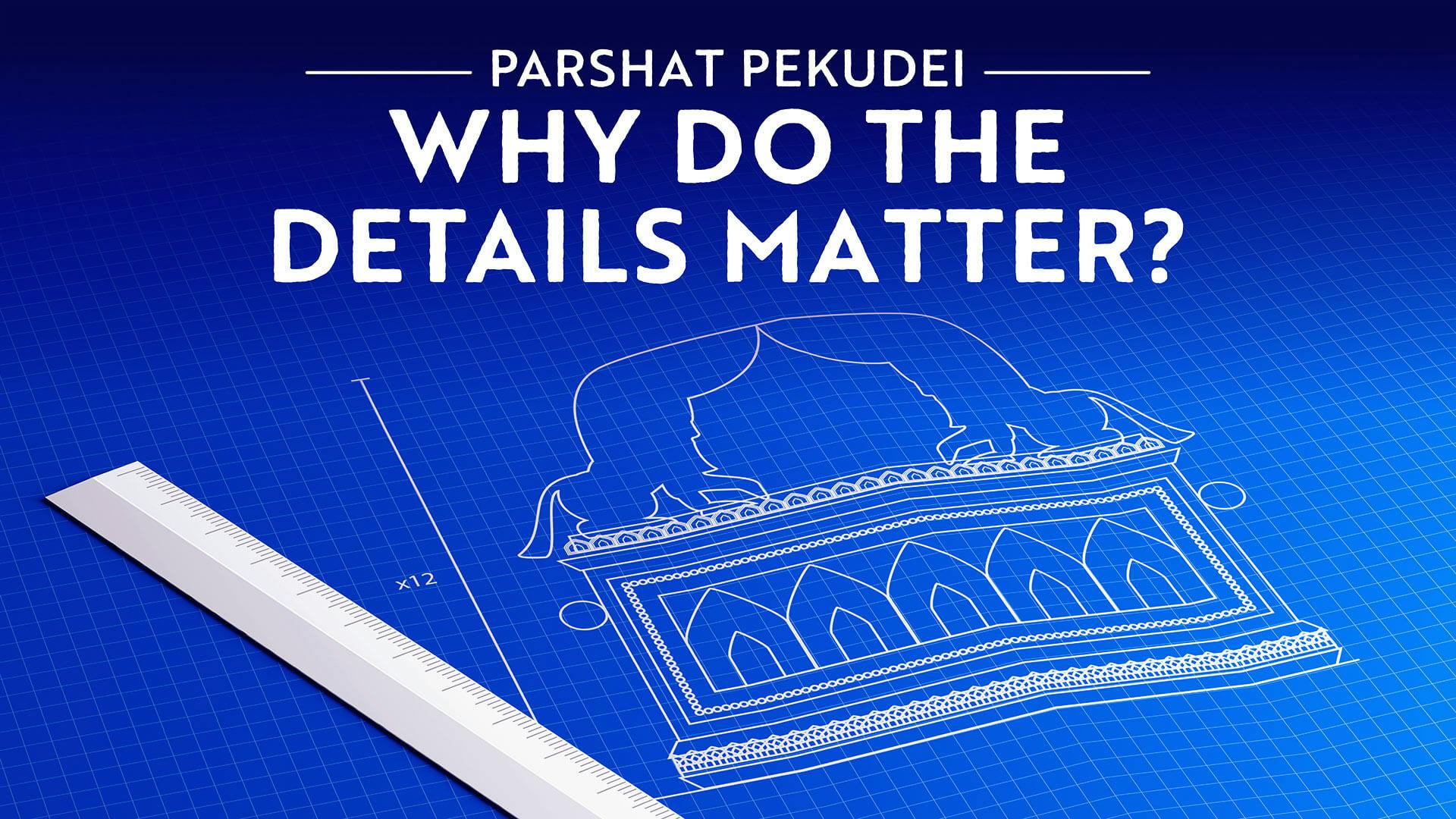
Pekudei: Why do the details matter?
Red, purple, white and blue – do they mean anything to you? Watch now to learn about the meaning of the colors in the Mishkan.
11 min
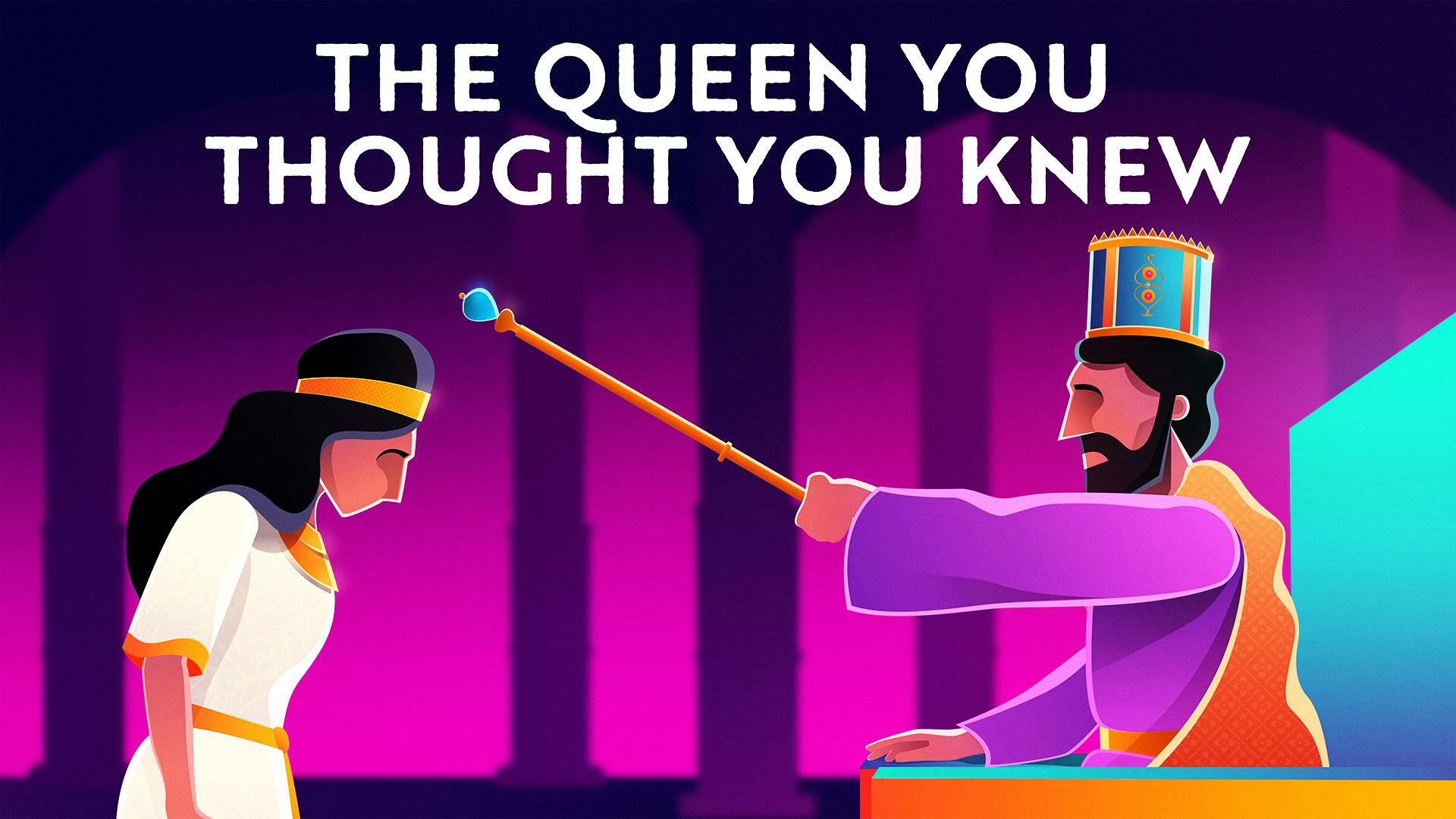
The Queen You Thought You Knew
Step beyond the children's version of Purim you learned in third grade. Uncover the sophisticated psychological strategies, political maneuvers, and hidden motivations that make the real Megillah a masterpiece of suspense.
Part 1 of 6 • 11 min

Why do we send Mishloach Manot?
What does sending food have to do with the Purim story, and why did Mordechai insist we continue this practice forever?
Part 1 of 2 • 46 min
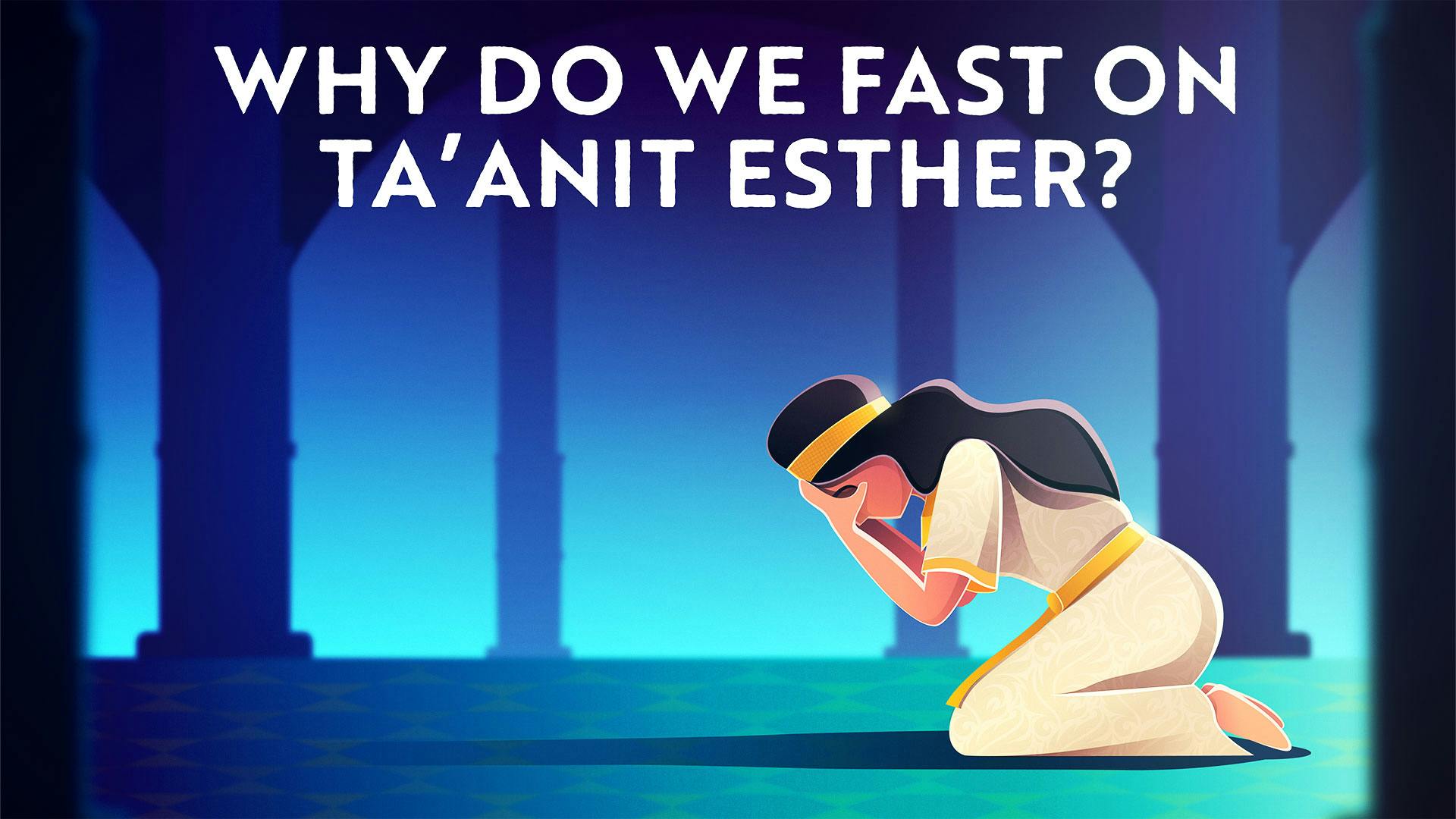
Fasting with Purpose: A Guide to a Meaningful Taanit Esther
Are you counting down the hours until your fast ends? What if these uncomfortable hours could make your entire Purim experience more meaningful? Discover why Esther's pivotal fast transformed her from passive bystander to national heroine—and how your hunger today can connect you to something much larger than yourself.
9 min

Could You Become Haman? Understanding the Path to Darkness
The Talmud makes a shocking claim: Haman's name appears in the Garden of Eden story. Coincidence? Not at all. Beneath Purim's costume parties lies an ancient pattern - Haman obsessing over "the one thing he can't have," just like Adam reaching for forbidden fruit. Uncover the eerie parallels that transform this villain from cartoon character to a mirror of our own darkest impulses.
Part 1 of 7 • 5 min

Mikvah: Why Does the Mikvah Make Me Pure?
Why does dunking in the mikvah’s waters leave us feeling “pure”? The meaning of this mysterious ritual may not be what you expect.
15 min

Kashrut: What Does God Have Against Cheeseburgers?
What is so spiritually problematic about mixing milk and meat? Why is it so important to God that we abstain?
13 min
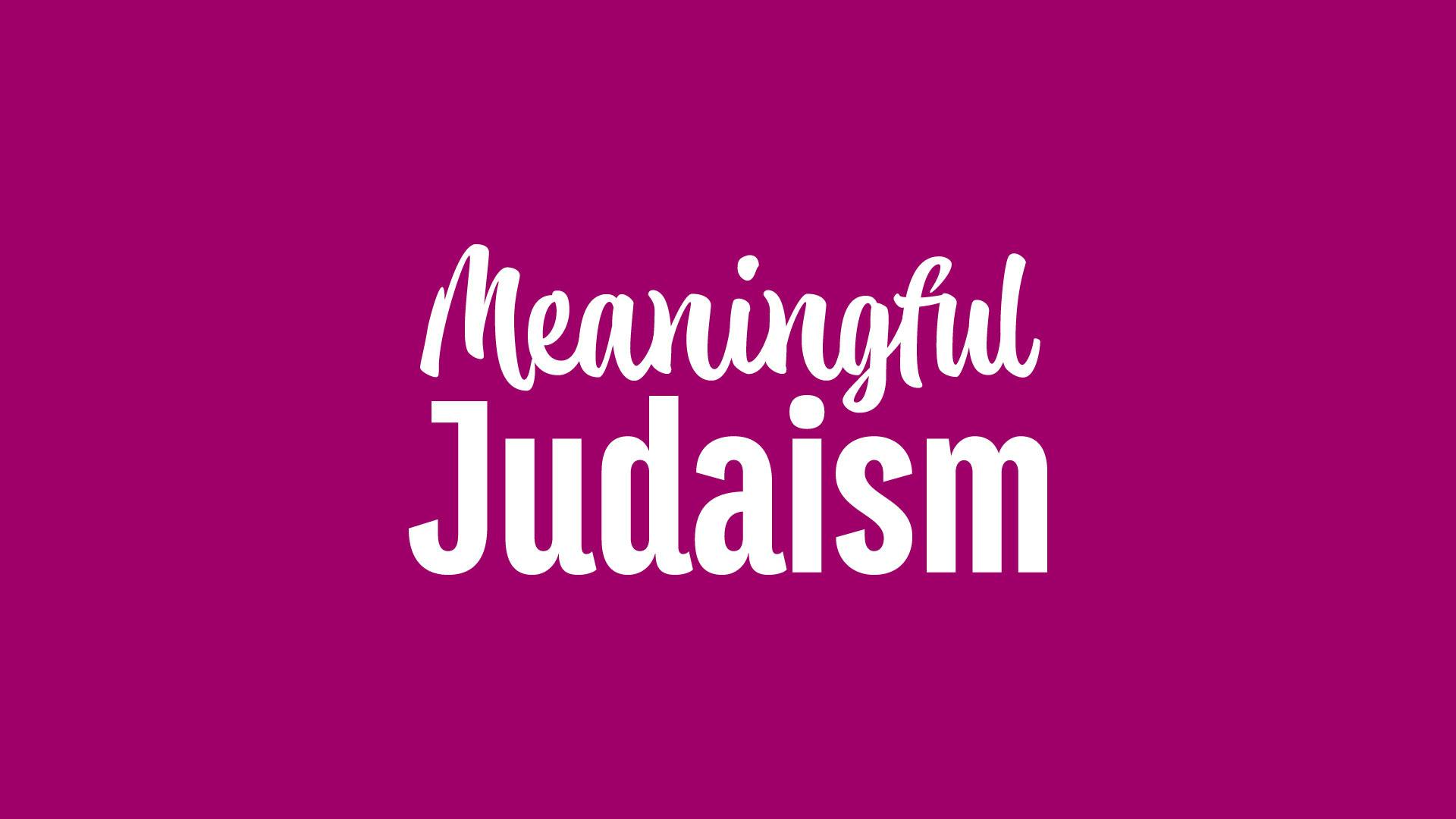
Tzitzit: What's Meaningful About These Strings?
Why does God command the wearing of tzitzit? Is it arbitrary, or is it supposed to teach us some deep spiritual lesson… and if so, what?
37 min

Shabbat: Did God Really Need to Rest? Shabbat's Role in Judaism
Why does God command the wearing of tzitzit? Is it arbitrary, or is it supposed to teach us some deep spiritual lesson… and if so, what?
Part 1 of 4 • 8 min

Niddah: Why Do Husbands and Wives Need to Separate?
Why would God want to keep husbands and wives apart? What does menstruation have to do with it? The Torah's laws reveal a surprising answer.
50 min

The Expulsion of Ishmael
Before God told Abraham to give up Isaac, God told him to give up Ishmael. This 8-part series probes the stories’ eerie similarities.
Part 1 of 8 • 48 min
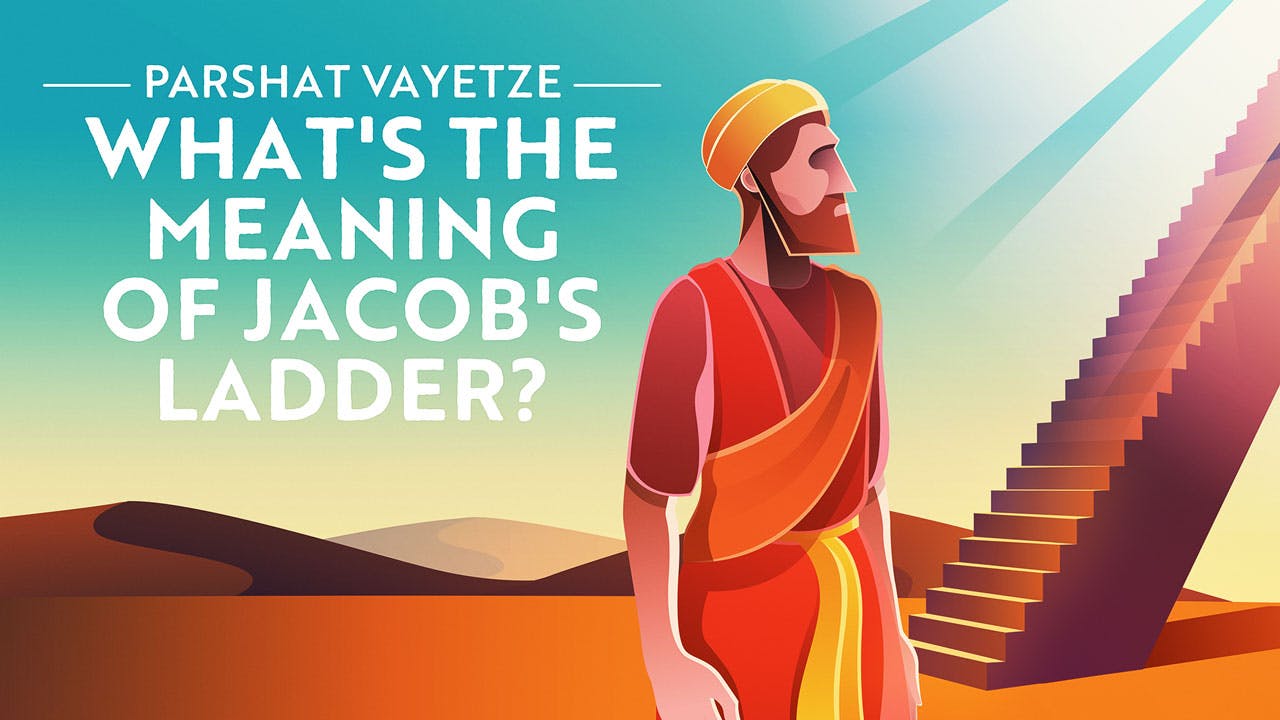
Jacob’s Ladder
What was the meaning of Jacob's dream, a ladder with angels going up and down? It may just shed light on Israel’s mission in the world.
14 min
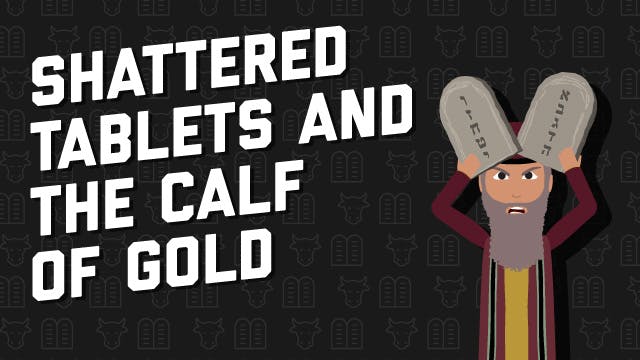
The Golden Calf
What was the Golden Calf really about? In this 12-part audio series, Rabbi Fohrman raises glaring questions and offers surprising answers.
Part 1 of 12 • 57 min
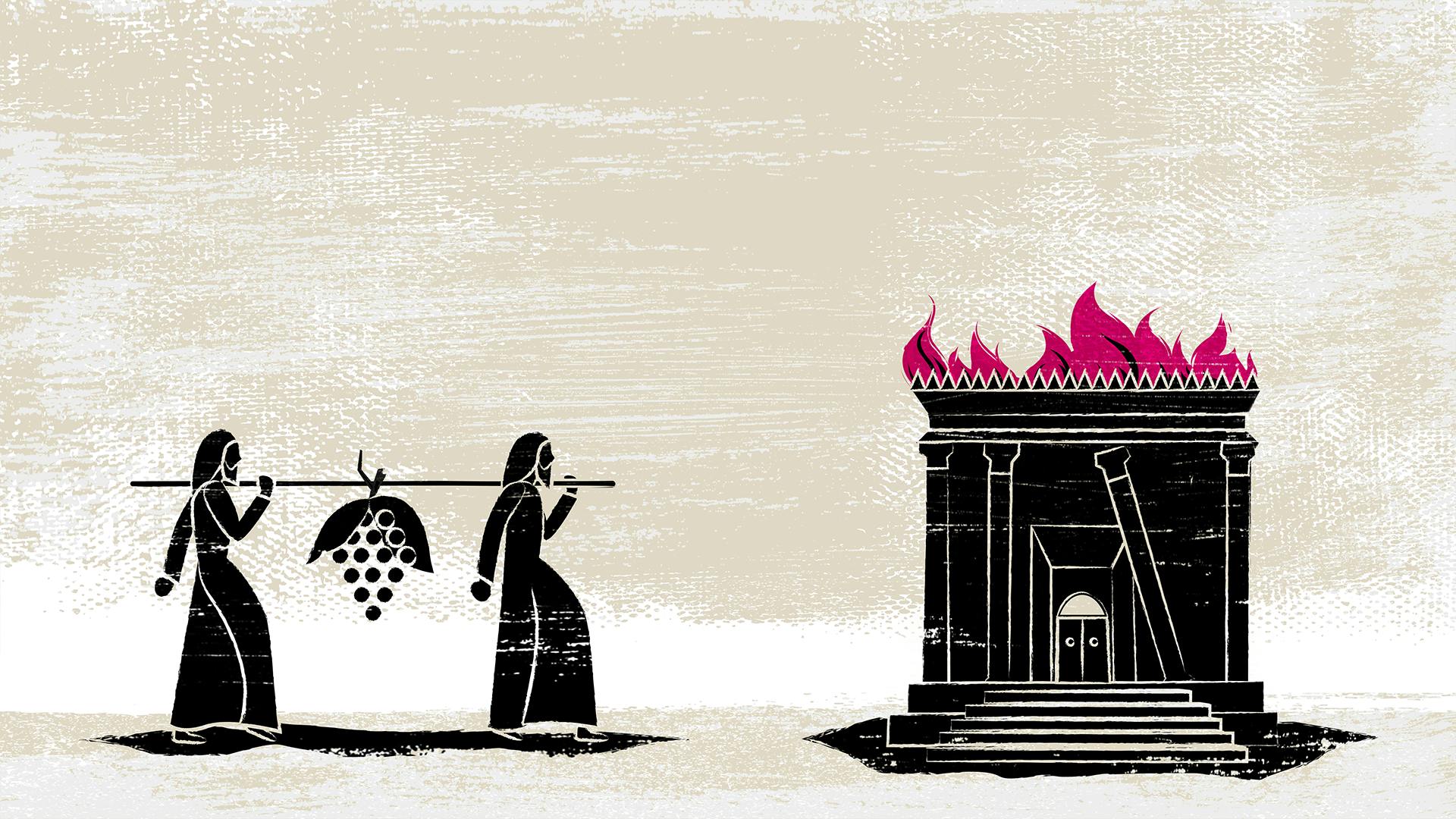
The Sin of the Spies
What was so sinful about the spies' report? We tackle that question by considering the Sages' comment that the sin occurred on Tisha B'Av.
Part 1 of 6 • 10 min

The Book of Job
In this 2-part audio series, we explore how to read the Book of Job, and wrestle with the book's central question: Why does God let us suffer?
52 min
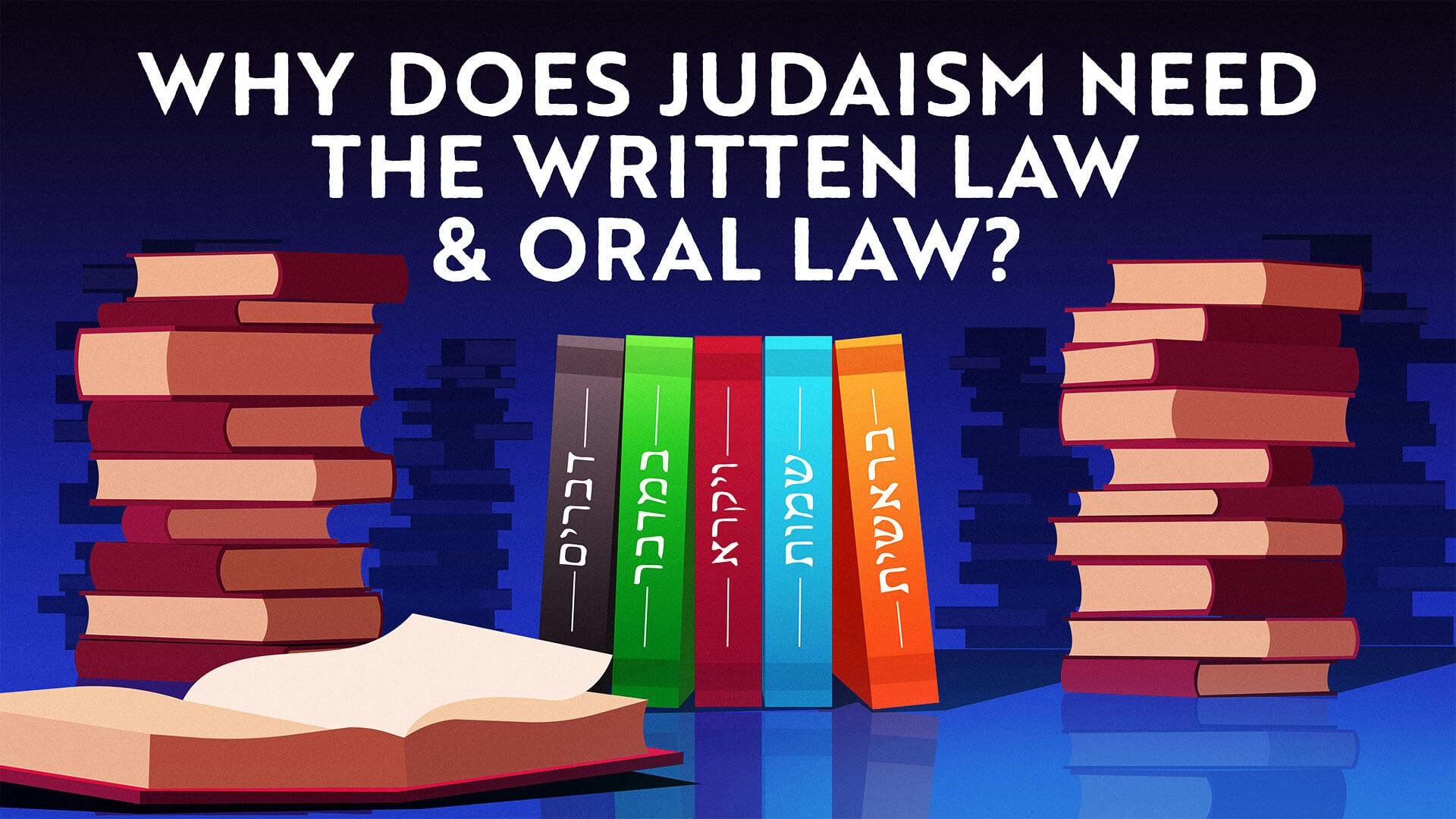
Why Does Judaism Need The Written Law And Oral Law?
Why did God write down some laws in the Torah, and reserve others for the Oral Law? Explore this by studying the law not to mix milk and meat.
14 min

What Is the Meaning of Life?
In this 7-part audio series, Rabbi Fohrman argues that the start of the Torah offers a surprising answer to this most essential of questions.
Part 1 of 7 • 34 min
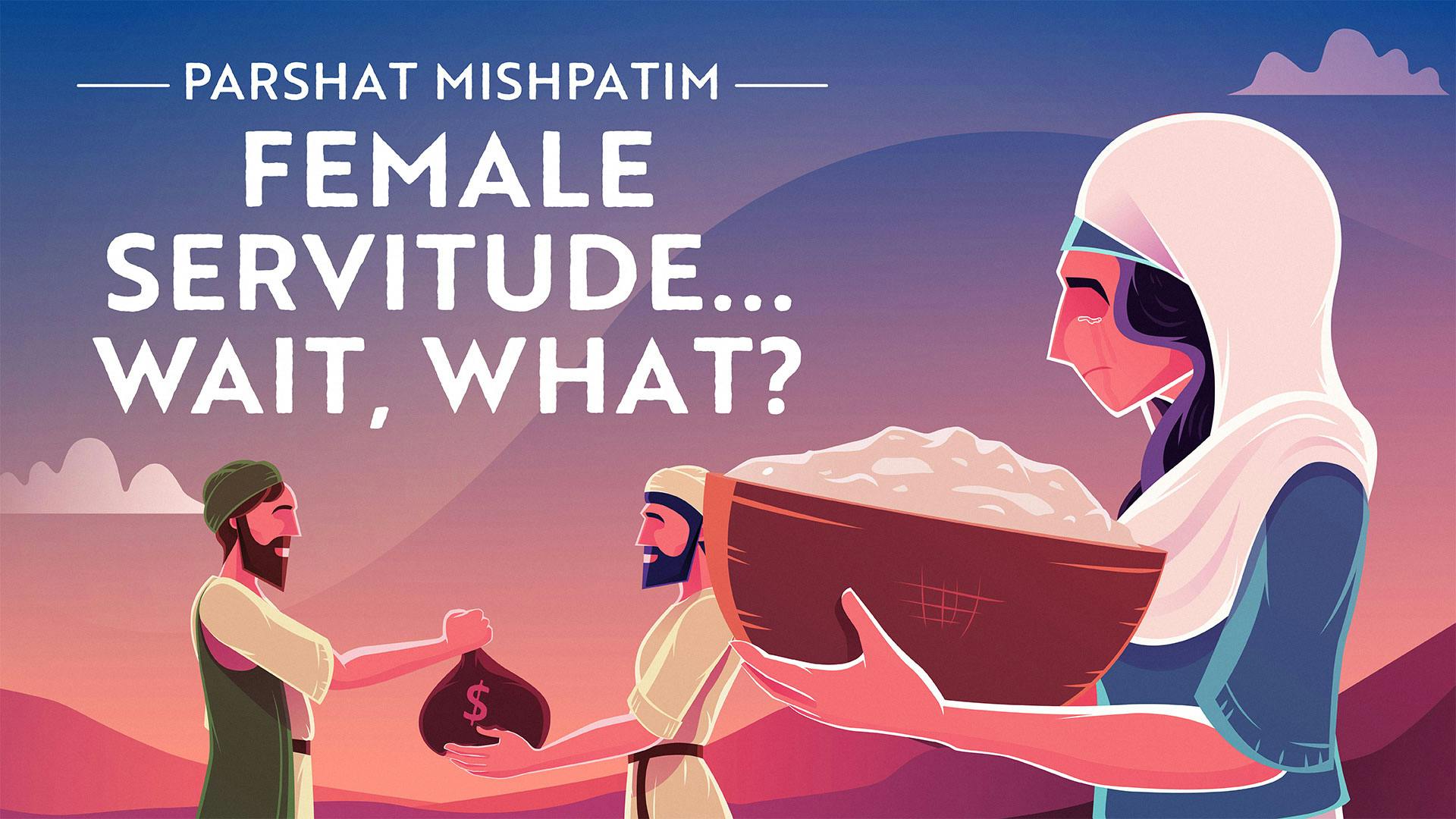
Why Does the Torah Contain Laws That Seem to Promote Slavery?
Do these laws reflect outdated values? This video explores how the laws of female servitude may contain a message with lasting relevance.
9 min
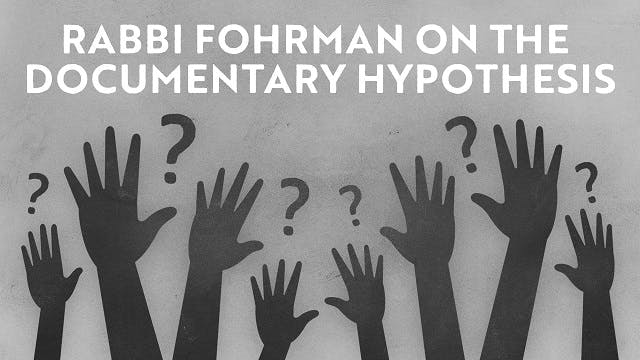
How Can We Respond to the Charges of Biblical Criticism?
In this audio clip, we explore how the Torah text itself – its chiasms and intertextual parallels – proves its singular authorship.
32 min

Why Aren’t Dinosaurs Mentioned In The Torah?
How could the Torah leave out such a big part of history? Does it mean Torah and science are at odds? The answer lies in how we approach the Torah as a book, and by grasping that Torah is meant to be a guidebook for life.
8 min

How to Read Midrash
Is midrash meant to be taken literally? Looking at a midrash about Pharaoh's daughter and her magic arm, we explore how to read midrash.
6 min

Intertextuality and Chiasms - How the Torah Encodes Meaning
We look at an incredible chiasm, one spanning over 15 chapters, and ask: What does it teach us about the Book of Exodus?
Part 1 of 2 • 11 min

How Our Stories Become Our Laws - The Surprising Relationship Between the Narrative and Legal Sections of the Torah
Is there a hidden link between the stories of Genesis and the Torah's later laws? In the law of manslaughter, we find a startling answer.
13 min

The 7 Habits of Highly Intuitive Readers of the Bible
Watch this 8-part interactive course lead by Rabbi David Fohrman on how to read the Torah in its original Hebrew Aleph Beta style.
Part 1 of 8 • 2 hours, 2 min
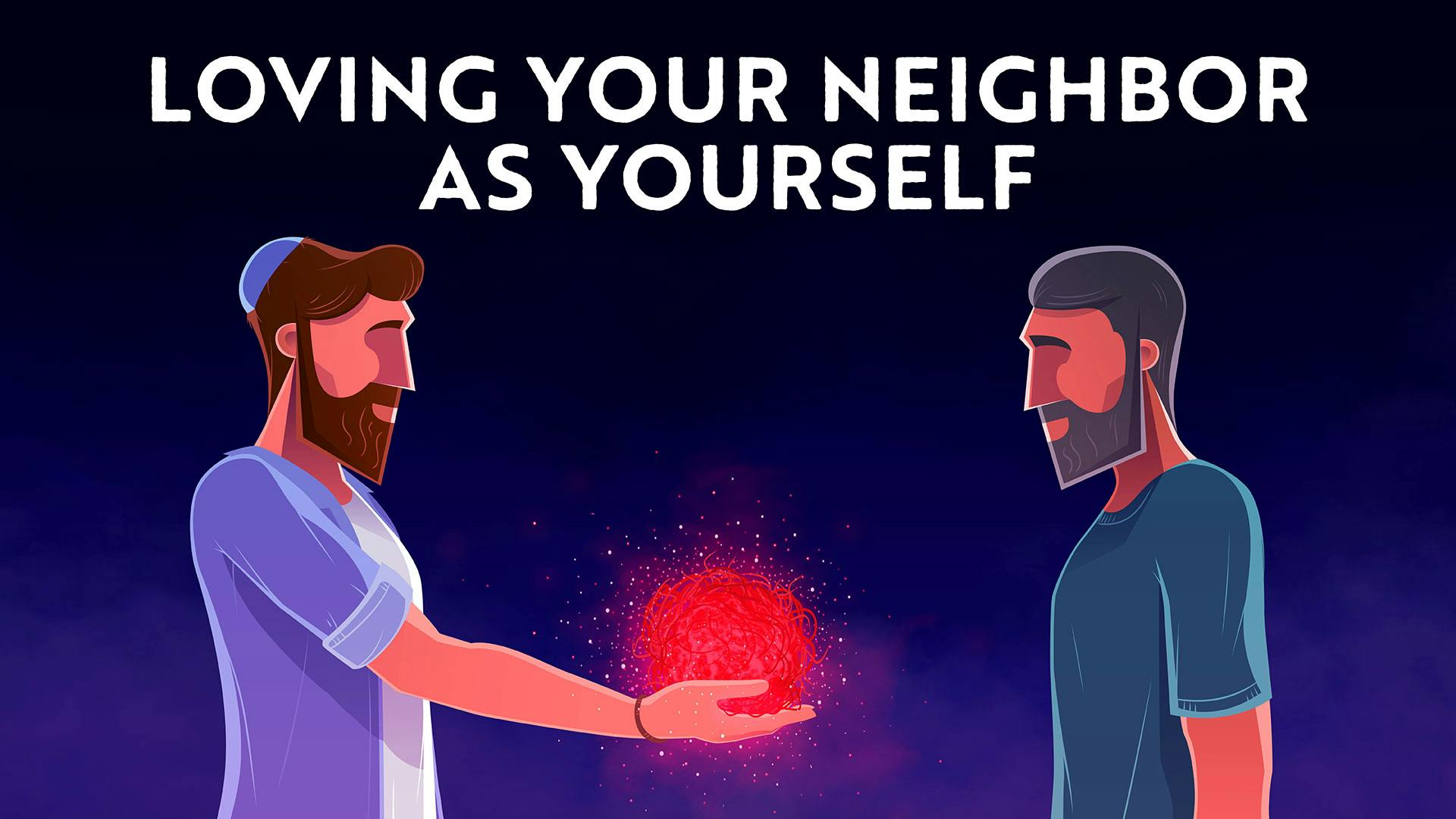
Do You Actually Love Your Neighbor as Much as You Love Yourself?
This law is often quoted as a slogan or soundbite, but when you open up Lev. 19 to read it in context, a more nuanced meaning emerges.
14 min

Why Does Honoring Our Parents Lead to Us Meriting a Long Life?
Only two commandments promise a reward of "long life": honoring parents and sending away a mother bird. What's the common denominator?
13 min
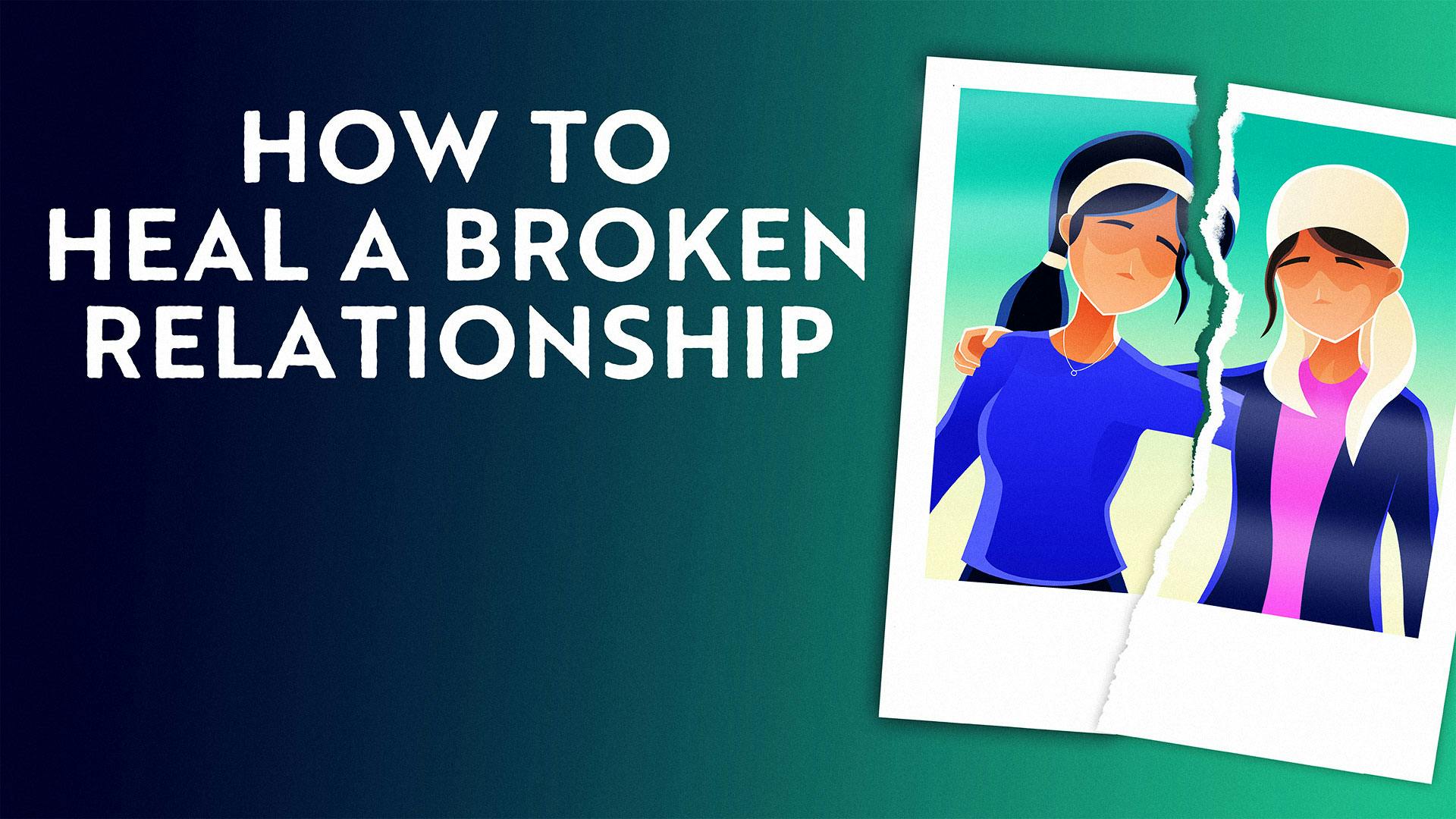
How to Heal A Broken Relationship
A loving relationship that has come apart can be unbearably painful. But repair is possible. The story of Rachel and Leah shows us how.
1 hour, 3 min
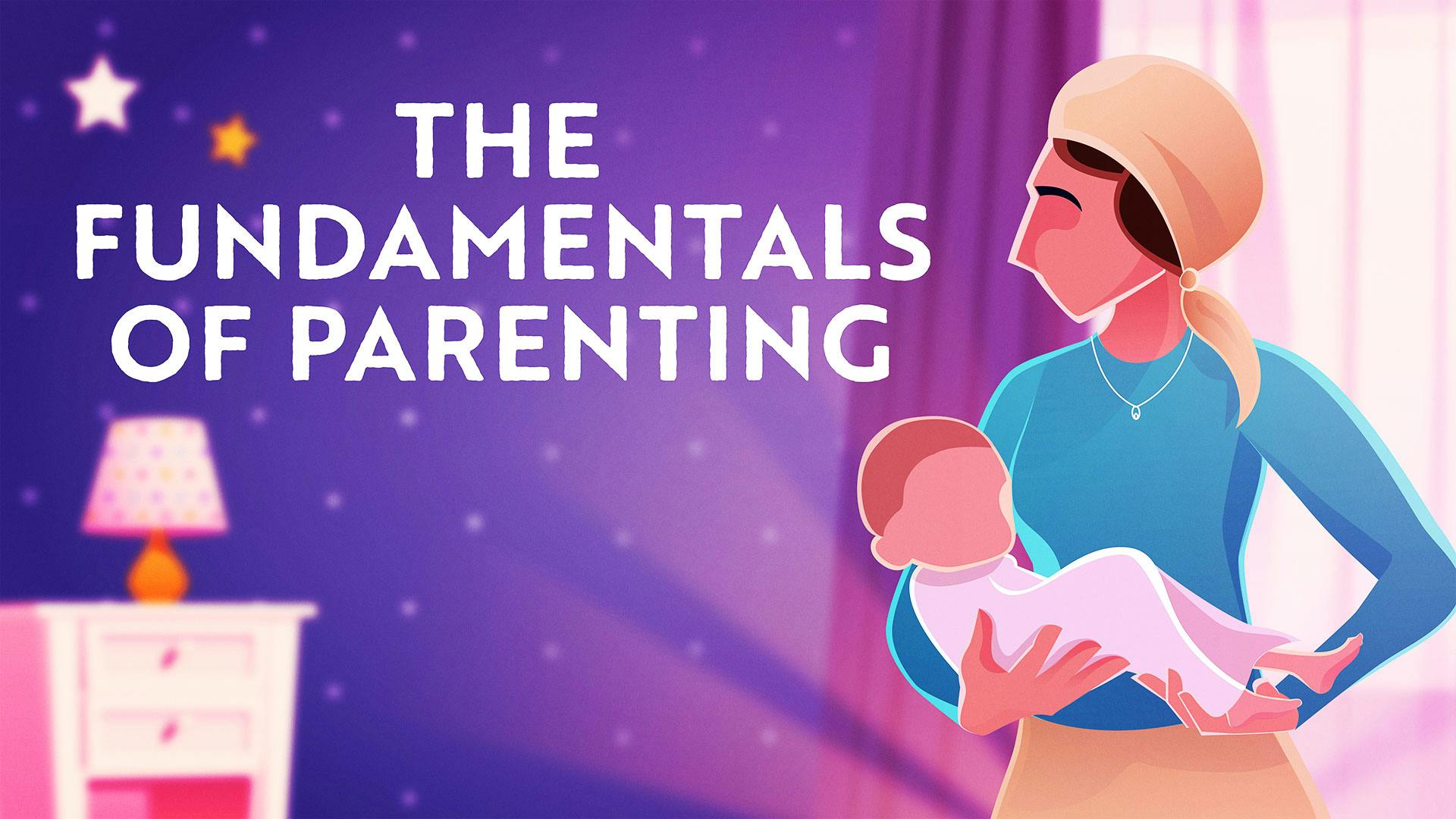
The Ultimate Parenting Guide: The Torah
Is there a parenting guide hidden in the Torah? In this video, Beth Lesch and Rabbi Fohrman share what may just be the closest thing.
27 min
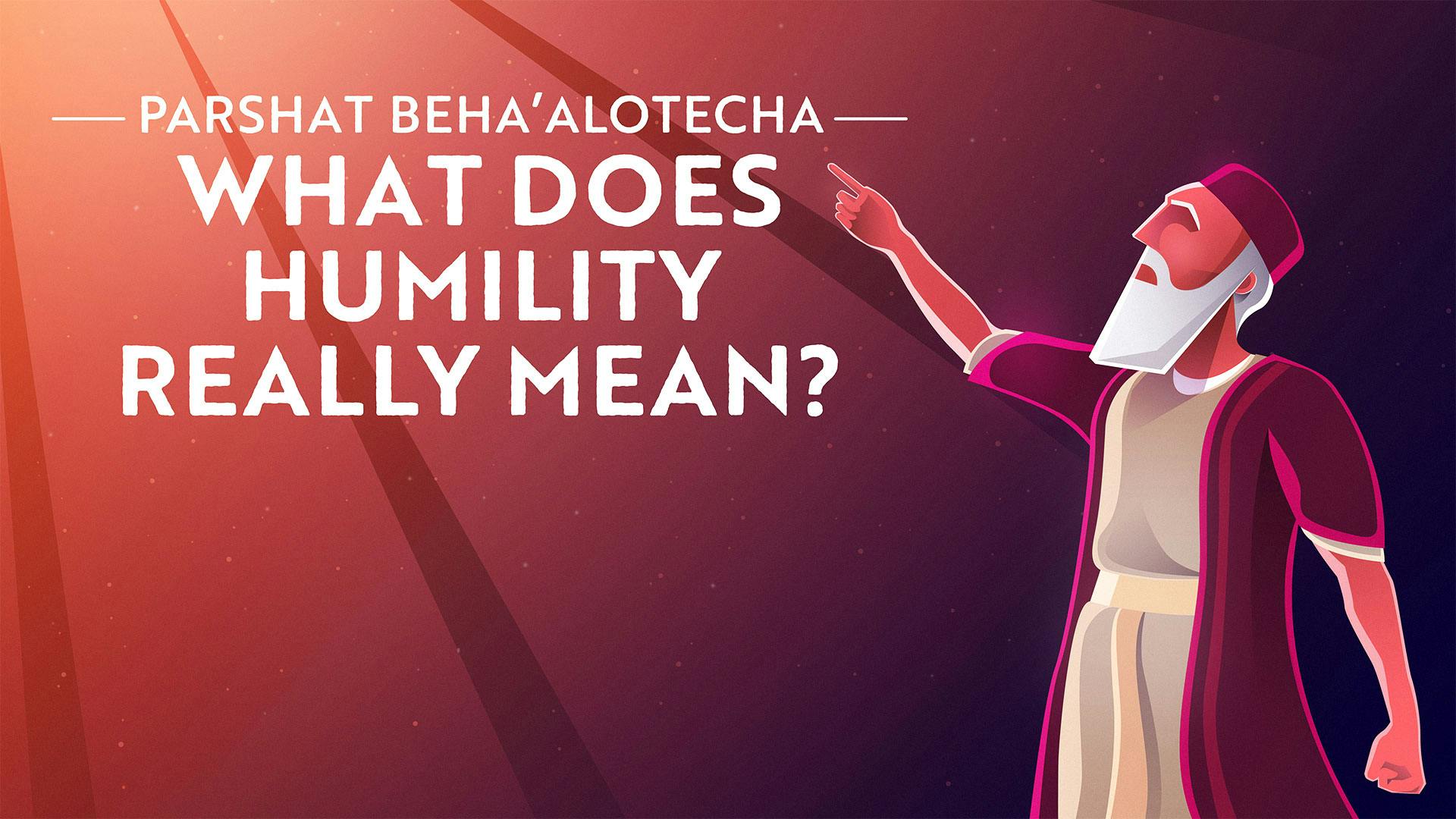
What Can We Learn from Moses’ Humility?
What is humility, in the eyes of the Torah? A study of the life of Moshe suggests that humility may not mean what we think it means.
16 min
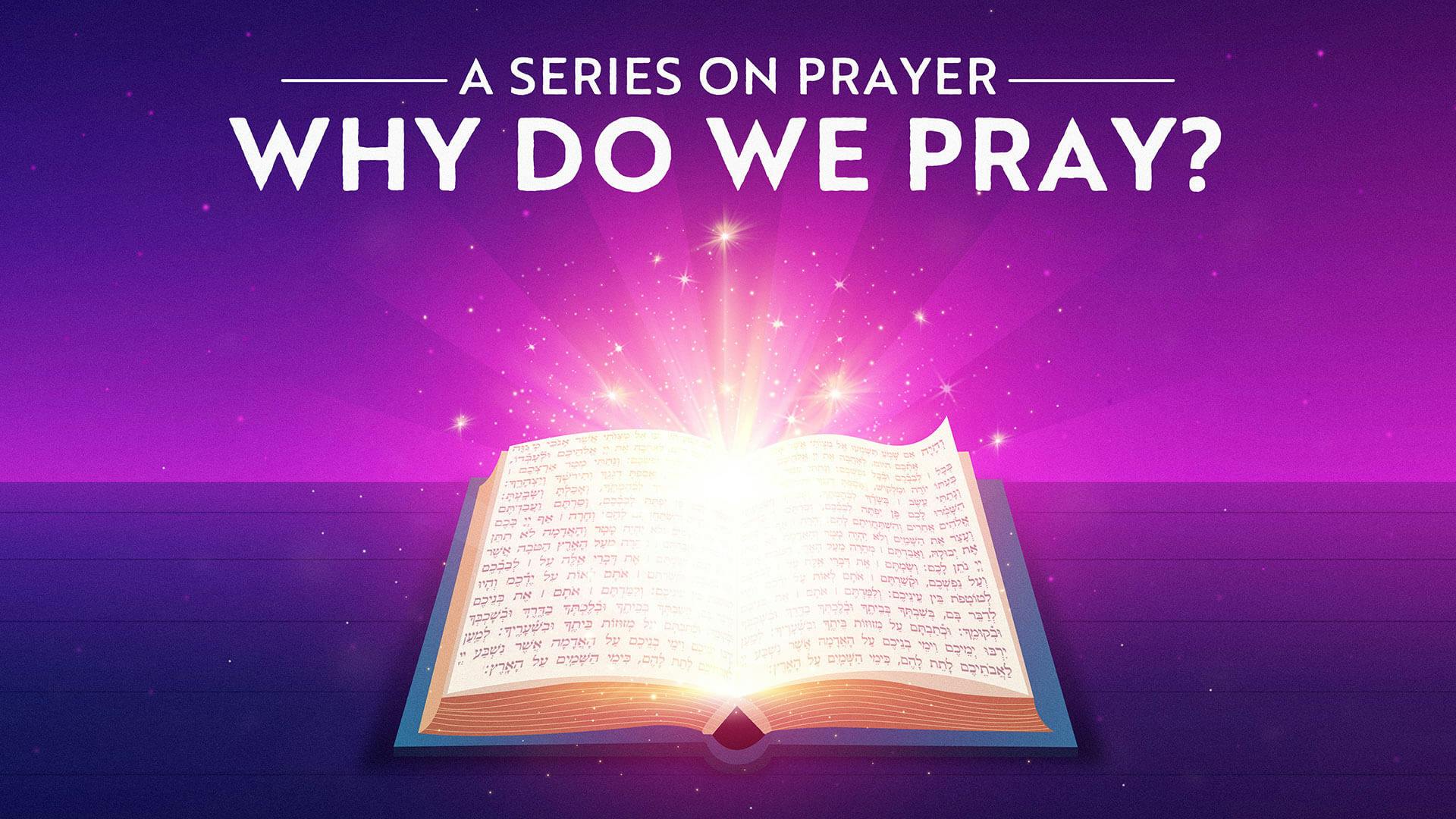
When Prayer Feels Rote: Rekindling Our Connection
How do we keep prayer from becoming an empty ritual? And does prayer actually "work"? The stories of Moshe and Adam offer answers.
13 min

Hannah’s Prayer: How to Get Close to God
In this series originally created for Rosh Hashanah, Rabbi Fohrman explores how Chana experienced closeness with God - and we can, too.
Part 1 of 4 • 8 min
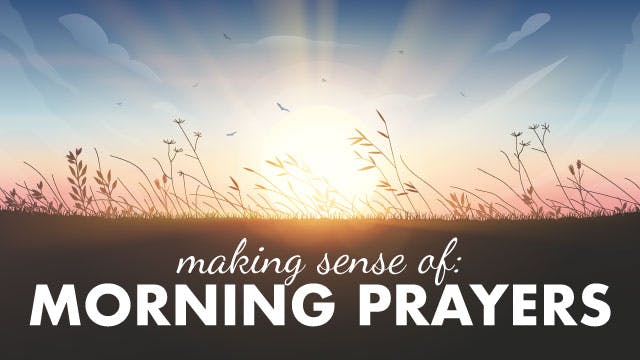
Shacharit: Making Sense of Morning Prayers
What is the unique power of Shacharit? How can we tap into it to infuse our prayer with intention and meaning? The Shema holds the key.
Part 1 of 6 • 11 min

Understanding Shabbat Prayers
On Shabbat, we insert unique prayers into the Amidah. This webinar explores the deep secrets they reveal about the essence of Shabbat.
Part 1 of 3 • 1 hour, 6 min

The Meaning of Hallel
In this recording of a live lecture, Rabbi Fohrman delves into the text of Hallel, unearthing hidden clues to find surprising meaning.
Part 1 of 7 • 56 min

The Meaning of the Book of Ruth: Yibum, Redemption, and the Power of Kindness
Most people know the Book of Ruth as the story of Ruth’s unparalleled loyalty to her mother-in-law Naomi and Boaz’s kindness in redeeming Naomi’s land by marrying Ruth. But in this illuminating course, Rabbi Fohrman reveals that the story of Ruth goes far deeper. Through surprising connections to Adam, Noah, Abraham, and even the Tower of Babel, Rabbi Fohrman uncovers how Ruth’s story is really an expansion of the biblical theme of yibum—the tradition of redeeming family legacy after loss. Ruth’s unwavering faithfulness isn’t just to Naomi; it speaks to an ancient human kindness that honors the dead and uplifts the living through kindness, weaving a narrative that connects us all.
Part 1 of 5 • 11 min
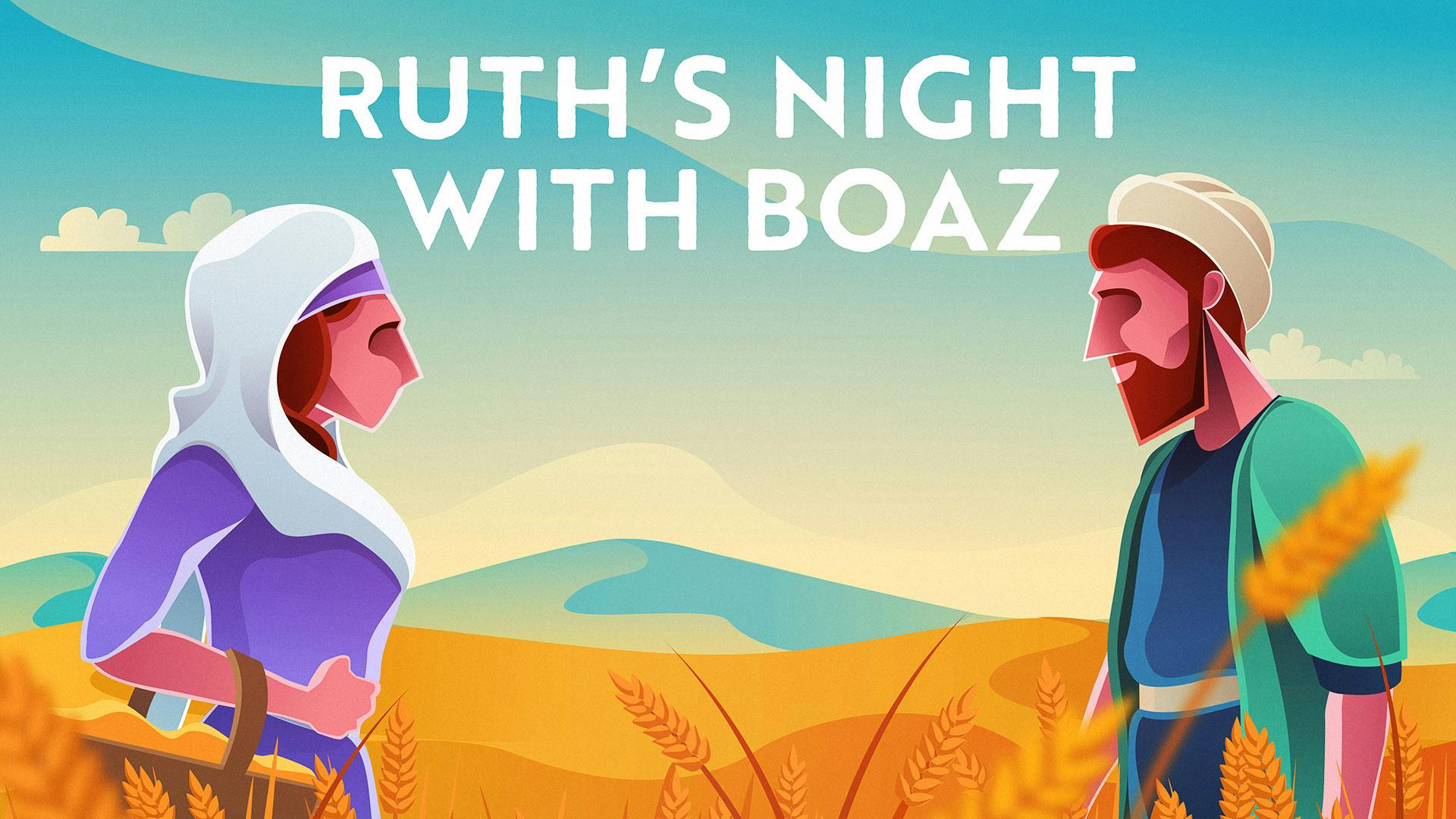
Did Ruth Seduce Boaz? A New Definition of Yibum and Kindness in the Book of Ruth
Are Ruth and Boaz truly biblical heroes? After all, the climax of their story is a night that seems to cross lines of seduction and impropriety—hardly what we might call virtuous. In this thought-provoking course, Rabbi Fohrman uncovers surprising links between Ruth’s bold actions and the stories of her and Boaz’s ancestors, connecting Ruth’s story to the uncomfortable tale of Lot’s daughters, as well as Tamar’s deception of Judah. Both stories reveal how yibum, an act meant to preserve family legacy, can go dangerously wrong when it’s forced or lacks true consent. Through Ruth’s relationship with Boaz, however, we witness a transformation in the meaning of yibum. While Ruth’s approach is audacious, she leaves Boaz’s choice in his own hands, bringing a new level of respect and integrity to this ancient tradition. Together, Ruth and Boaz reimagine yibum as an act not only of kindness, but one rooted in mutual respect and partnership.
Part 1 of 4 • 11 min

Yibum and Abraham’s Hidden Act of Heroism
Abraham is celebrated as the father of the Jewish people, the ultimate patriarch. Yet when the Torah first introduces him, it’s through a seemingly ordinary genealogy at the end of Parshat Noach. Why would the Torah introduce such a central figure in such a mundane way? And, perhaps more importantly, why was Abraham chosen by God in the first place? In this final lecture of the series, A Brief History of the World, Rabbi Fohrman uncovers a surprising answer: this genealogy may hint at an act of heroism by Abraham—yibum, stepping in to preserve the legacy of his deceased brother. This act, hidden within the family tree, may hold the key to why Abraham was chosen to shape a legacy of kindness for generations.
Part 1 of 11 • 57 min
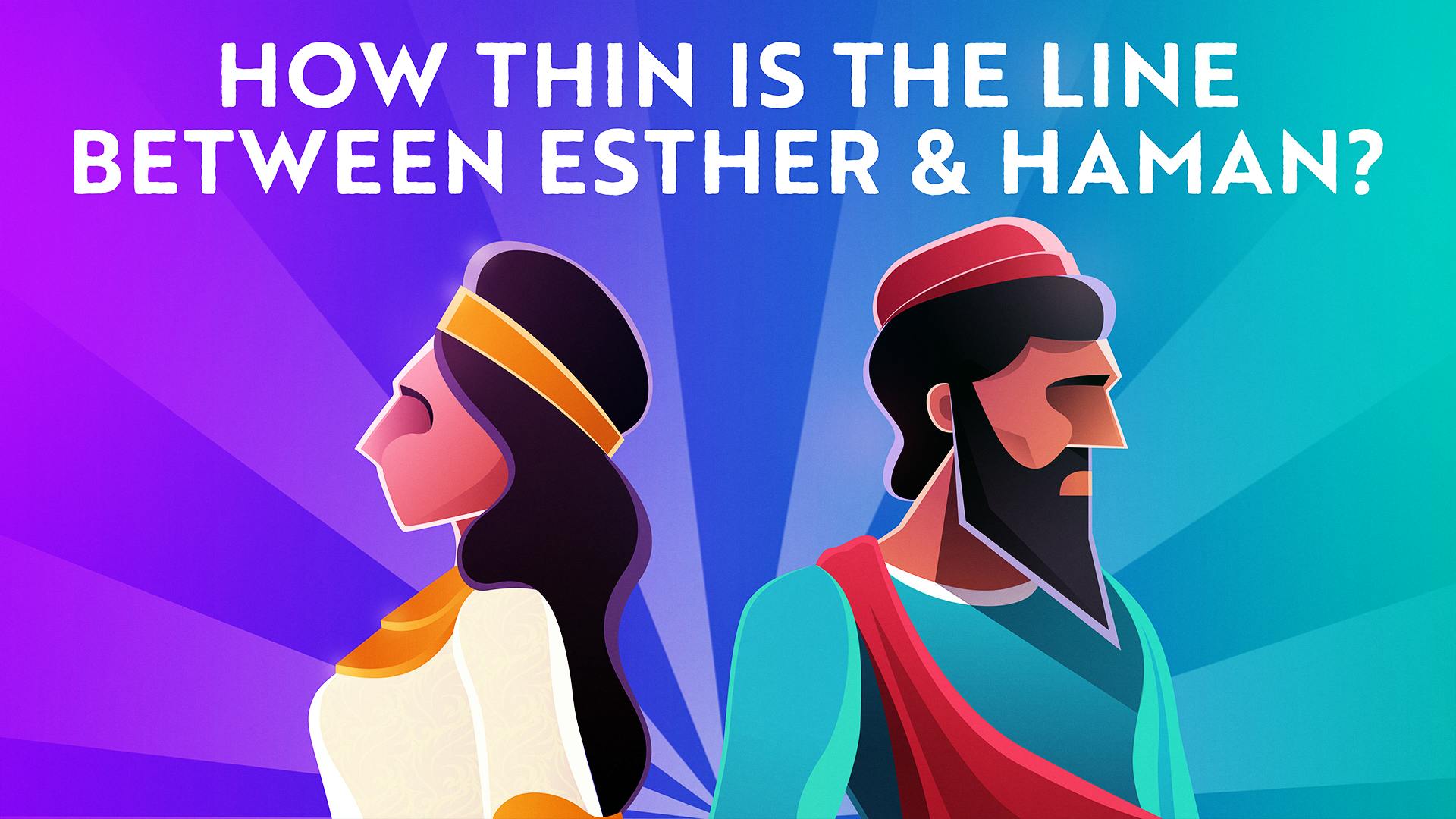
Yibum and Chalitza: The Thin Line Between Esther and Haman
In this two-part series, Rabbi Fohrman uncovers a hidden layer in the Purim story that might just change the way you see Esther and Mordechai’s heroism. In Part One, he reveals how the most climactic moment in the Megillah contains a surprising reference to the laws of yibum (levirate marriage) found in Devarim. Then, in Part Two, Rabbi Fohrman deepens these parallels, showing how Esther and Mordechai, descendants of Benjamin, take on a unique mission to save the Judeans—a bold, almost yibum-like act of preserving their people’s future. (And for a deeper dive into the connections between Mordechai and Esther and Judah and Benjamin, check out this animated course.) In stark contrast to Mordechai and Esther stands Haman, who is driven by self-interest, seeking only to promote his own name and legacy. Through these characters we see how the willingness to take on yibum responsibilities becomes the true measure of heroism and lasting success, inviting us to rethink the powerful message at the heart of the Purim story.
Part 1 of 2 • 1 hour, 5 min
